Why do dogs bite?
When dogs bite, chaos can quickly ensue, as injuries are had and anger is made. Why do dogs bite people sometimes, what dog has the strongest bite, and when should you be worried?
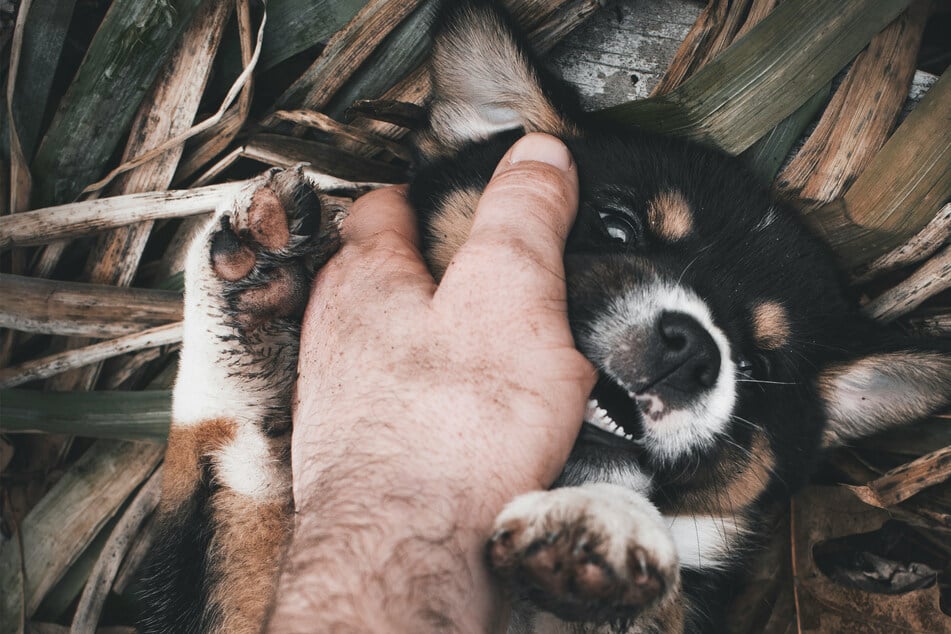
If your dog has started biting people or tugging on its own paws and tail with immense strength, something could be seriously wrong.
Biting dogs are both a danger to the people and animals around them and to themselves.
The best way to establish how you can help your biting doggo is to first figure out why it is biting people in the first place.
Why do dogs bite people?
There are a variety of reasons why dogs bite people from time to time, some being comparably harmless (though still painful) and caused by something innocuous, others being truly worrying and potentially dangerous. If your doggo is biting people, identifying the reason behind this behavior is a good first step towards a permanent solution.
It's extremely important to keep in mind that dogs can be seriously aggressive sometimes, and not every dog is suitable for every family. More unstable and unpredictable dogs should certainly not be allowed around children and vulnerable people. This goes double for dogs like the American XL Bully, which was recently banned in the UK due to its tendency towards extreme violence.
So what actually explains this most unwanted of behaviors? Why do dogs bite people? In general, it is due to aggression, fear, illness, age, or simple playfulness. Let's take a look.
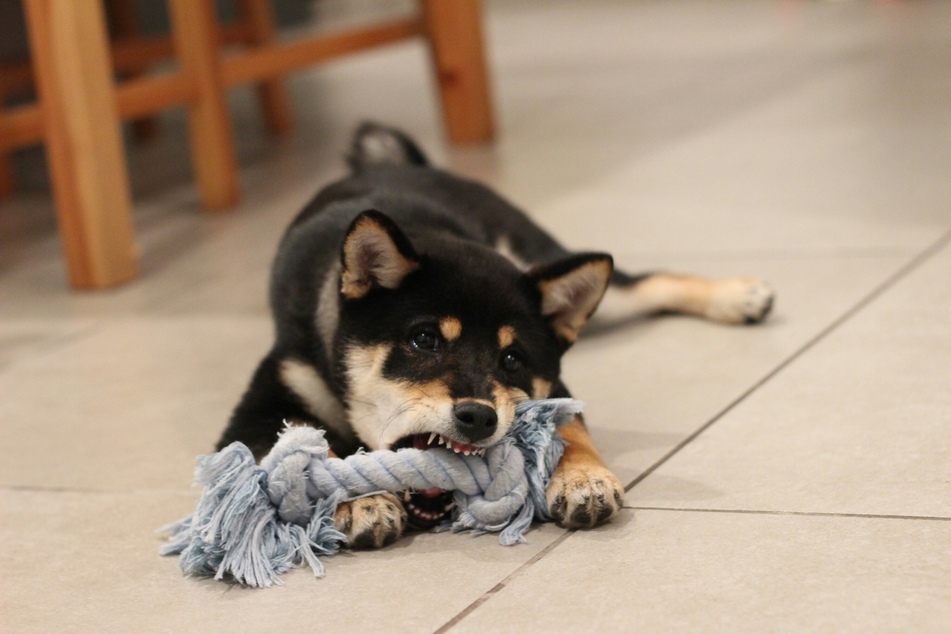
Aggression and anger
When dogs get angry and aggressive, they can resort to violence. If this happens, the risk of biting greatly increases and can become very dangerous. While your average chihuahua is unlikely to do much damage and is something more akin to the bite of a cat, a bigger dog or one with a particularly strong bite can be extremely dangerous and in severe cases even deadly.
Fear and fright
If a dog gets scared, it can become erratic and behave in a very unbecoming way. In these cases, you need to keep a safe distance from your pooch and respect its needs. Your dog is not necessarily as brave and understanding as you are and also doesn't have as much self-control. Be careful, but don't get angry when it lashes out because of fear. If it gets too intense or dangerous, take it to the vet.
Playfulness
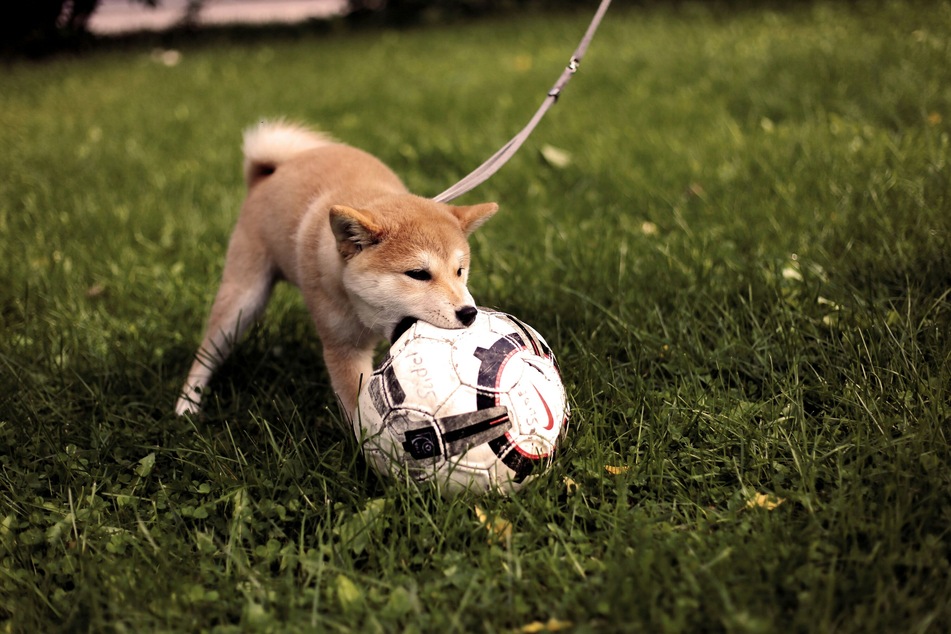
When dogs are playing, mistakes can easily be made and those mistakes can result in bites here and there.
These bites are often completely unintentional and don't usually merit much worry, as they do minimal damage.
Take a deep breath, discipline your dog, and train it well so that this doesn't keep happening.
It's a very simple solution!
Teething
At around three to four weeks old, your dog will start its teething process, which will continue until it has a full set of adult teeth at around six months. During this time, dogs are likely to give you little bites here and there. Luckily, they are not yet strong enough to do any damage and are pretty much harmless. Keep this in mind, though, and keep teething puppies away from fragile human babies.
Illness or pain
If your dog is sick or in pain, it is likely scared as well. When this happens, as we have discussed, your dog might start lashing out and biting. This goes double if you have, for example, patted your dog in a spot that's causing pain. Your doggo has likely thought that you hurt it and responded in kind, lashing back and protecting itself. Go to a veterinarian as soon as possible to make sure your pup is alright.
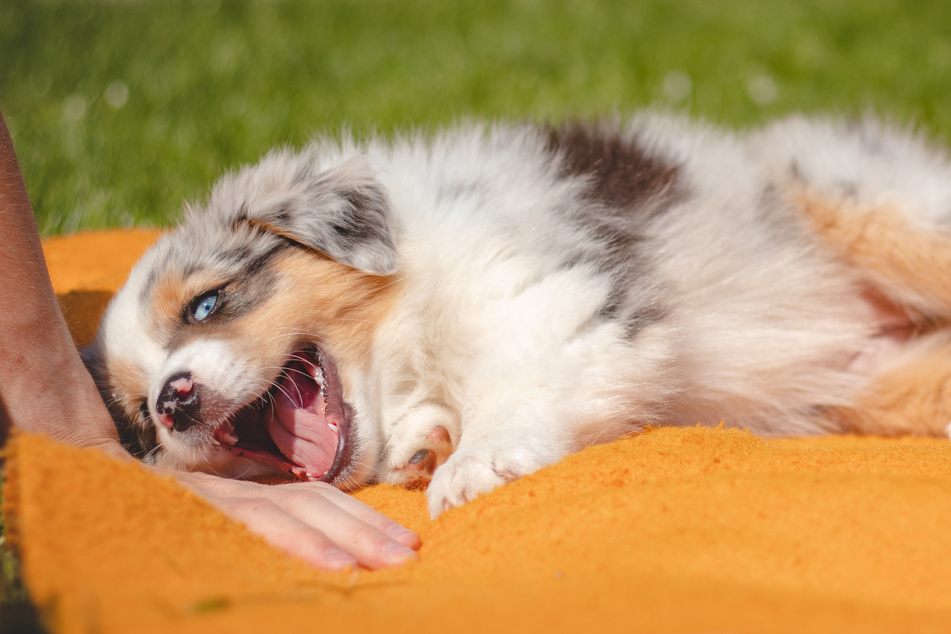
Why do dogs bite their paws and tails?
Dogs have often been known to not only chase their tails but bite them, too. In addition, dogs often bite other body parts as well, including their paws and nails, and can sometimes be seen biting their skin and pulling while grooming. This is a strange behavior, and clearly non-aggressive, so what on Earth is behind it?
Here are the usual reasons why dogs like to bite their paws and tails
Allergies: When dogs have allergic reactions and are perhaps a little bit itchy, they will often bite themselves and scratch to try and relieve the sensation.
Health issues: There is a vast assortment of health issues, including fungal infections, mental health issues, injuries, arthritis, and more that can cause the biting of paws, tails, and other body parts. If this is the case, you need to go to the vet.
Parasites: Things like ticks, fleas, giardia, mites, and other parasitic creatures can cause great discomfort for dogs. In response to the symptoms of such infections, dogs can get a little bit self-destructive.
Anxiety: Issues around mental health and, in particular, anxiety and separation anxiety, can sometimes cause symptoms like nervous biting, over-grooming, and more. Again, this is a potentially serious issue.
Boredom: Have you been leaving your dog alone a lot, or haven't had much time for walks and games? If so, your dog might be biting itself simply out of a sense of extreme boredom, which may have started to cause mental health issues. Remember that, as a dog owner, it is your responsibility to provide your dog with the attention and exercise (both mental and physical) it needs.
Playfulness: Your dog could simply be biting itself here and there during play. In this case, as long as it is only minor and relatively rare, this is not something to worry about.
Grooming: If your dog's nails are too long, and you have failed to trim them yourself, it may take it upon itself to start biting and pulling at its nails, trying to get them shorter and more comfortable. In addition, there may be a grooming issue with its tail that needs sorting.
Important: If you believe that your dog may be biting itself due to health concerns, it's well and truly time to take a step back and understand that you are not a health expert. Instead of self-prescribing, get your dog to a veterinarian and have it checked out.
What dog has the strongest bite?
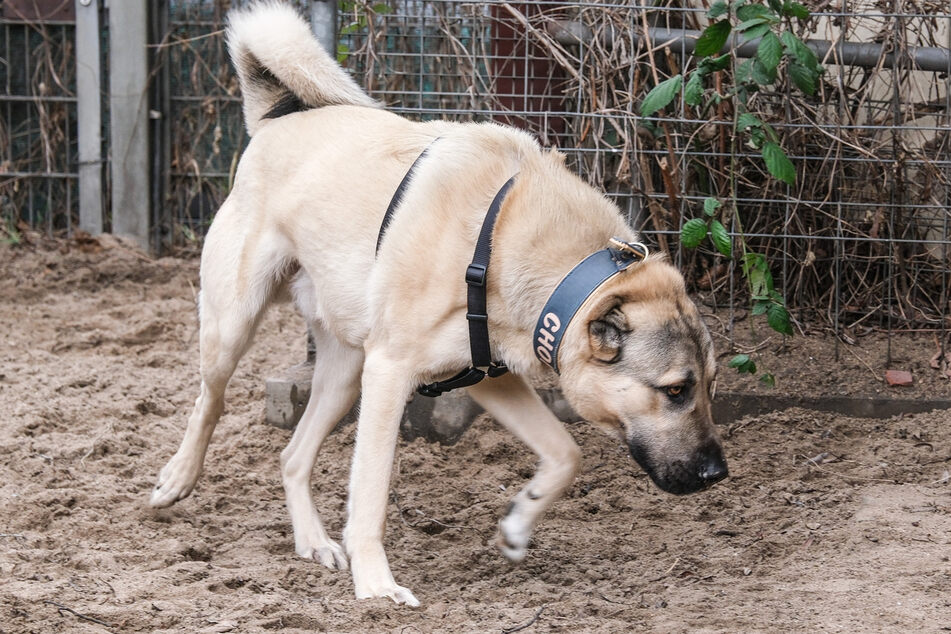
The strongest dog bite in the world is that of the Kangal herding dog, which can bite with a strength of 740 PSI.
This is an unbelievably strong snap that could do a huge amount of damage and largely comes down to the breed's history of shepherding and protecting sheep from wolves in Turkey.
As we said in our article on the world's strongest dogs, this makes the Kangal a very dangerous breed and one that should be kept away from children.
Be very careful when you have a dog that tends to bite, even if it is a teething puppy. Make sure to clean any bites thoroughly and disinfect them – it's better to be safe than sorry!
Cover photo: Unsplash/Daniel Lincoln




